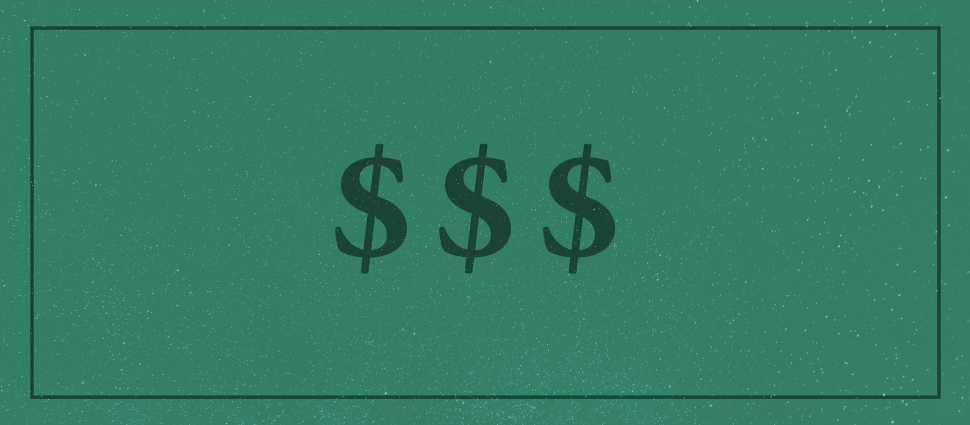Wary of Words on the 1%

Did you know the that top 1% own over 50% of the world’s wealth? Maybe you did, and think that disparity is grossly unfair. After all, there's a high chance—99% chance, to be precise—that you are not part of that 1%. Are not all human beings equal? Are we not all made in the image of God? Do we not all equally deserve a high quality of life? How can you look at a statistic like the one above, and not believe that’s a problem, and not the way an ideal society should look?
But did you also know what effect that statistic has on those who learn it? It's Envy. There are two things that need to be said concerning rhetoric about the 1%. First, we should examine the assumption that wealth disparity, even of massive proportions, is inherently bad or evil. Second, we should ask whether continually refering to a class of 1% supervillains has any positive effect on our psyche and actions?
In response to wealth disparity, we often demand equity. But what exactly is it that we are asking for? Perhaps, in our current climate, it’s better to start off by asking: “What inequities are still acceptable?" Besides differences of personality, are there any areas of life where inequity is a good, or even an acceptable thing, something perhaps best left unmeddled with? If we extend inequity outrage outward, in concentric circles, we can begin questioning the fairness of every institution, business, or culture. For example, is it fair that less than 1% of Americans hold over 99% of the lawmaking power in this country? Is it fair that less that an athletic elite of less than 1% captures over 99% of the televised athletic events? Is it fair that less than 1% of aspiring musicians receive over 99% of music industry’s opportunities and profits?
Everywhere you look, everywhere you turn, in every field, occupation, and metric, we can witness this snowballing effect, where the rich get richer, and the poor get poorer. People gain or inherit specialized talents, and skills, and then receive more opportunities to further develop those skills, which then leads to their further separation from the rest of us. Jesus taught this as a spiritual truth in his parable of the ten talents, “For to everyone who has will more be given, and he will have an abundance. But from the one who has not, even what he has will be taken away” (Mt 25:29). If total, monochromatic, homogeneity is your standard and goal, then either you will pronounce the world to be unfair at every step, in every place, and in every time, or you will have to re-examine your standard of fairness.
Secondly, we should consider what effect the villainizing of the 1% has, both personally and collectively. Solomon notes that “all toil and all skill in work come from a man’s envy of his neighbor.” And he concludes that: “this also is vanity and a striving after wind” (Ecc 4:4). Envy, at some level motivates most of us, most of the time, but it makes a terrible taskmaster. “A tranquil heart gives life to the flesh, but envy makes the bones rot” (Prov 14:30). How could we possibly believe that dwelling on, or obsessing over the lifestyle of the super-wealthy will generate anything but the basest of bone-rotting emotions? Comparing upward will leave you with eyes only for what you don’t have, when the Bible tells us that in Christ, all the world is ours (I Cor 3:22).
From a collective and societal level, the 1% rhetoric is supremely dangerous. It is the seedbed of classism, and bloody revolution. Here’s the unfortunate secret: by definition, there will always be a one percent. And it will always feel like they have a lot more than you. The pre-occupation with this as an unfairness, as an injustice, leads inevitably to reaching up in order to tear down, rather than reaching down in order to bring up. Top-down communistic practices which seek to level the playing field through redistribution do indeed achieve greater “equality”, but only because it makes everyone poorer, and therefore the disparity becomes less.
Jesus wants to re-frame how we think about our money. The implicit myth at play every time stats about the 1% are dredged out is that wealth and happiness plot along corollary lines. Jesus warns us against this lie which always walks hand in hand with covetousness: “Be on your guard against all covetousness, for one’s life does not consist in the abundance of his possessions.” (Lk 12:15) The solution starts with looking up at the infinite wealth we are given in Christ, the sort of abundance that causes Paul to regard everything else as refuse. Then we are also told to look at those around us. Instead of the 1% at the top, we need to be looking at the 10 or 20% at the bottom. Which, if you’re in America, does not include you. The Bible persistently calls us to look at and have regard for the poor. Instead of stirring up envy, giving and caring for those at the bottom lifts us up, as we imitate God’s care for us in his gift of salvation.
Justin Poythress (MDiv, WTS) is Assistant Pastor at Westminster Presbyterian Church in Fort Myers, FL.
Podcast: God's Transcendence and Poverty Alleviation
"Envy in the Digital Age" by Brad Littlejohn
"Psalm 73: For the Soul Sick with Envy" by John Hartley
"Reformation 500, Social Justice and the Gospel" by Jon Payne
Grace Transforming by Philip Ryken
A Place to Belong by Megan Hill




